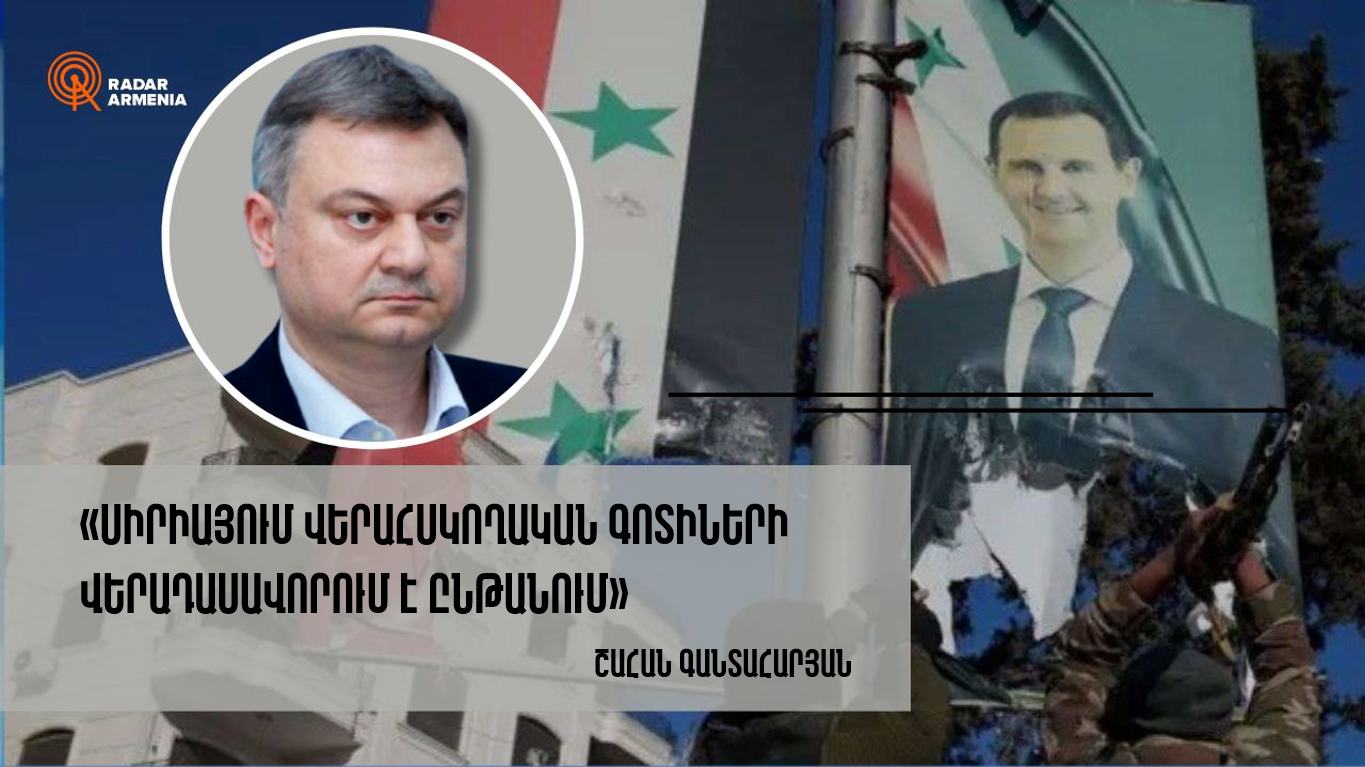Radar Armenia's interlocutor is international expert Shahan Gantaharyan.
- Mr. Gantaharyan, what is happening in Sira? In your opinion, why did the situation escalate sharply? Who benefited from this?
- As soon as the cease-fire was established in Lebanon, an attack was immediately launched in the direction of Aleppo. The neutralization of the Lebanon-Syria resistance network, the control of various roads, and the inhibition of new weapons are the starting points for unleashing these operations. From this, it can be concluded that these actions benefit. Aleppo was a proposed zone for Turkey, and this was a long-standing plan. The unprecedented placement of Iranian bases and the current degree of Russian involvement in the Ukrainian war, I think, contributed to this action.
The cases should be considered within the logic of the Moscow-Ankara agreements. I think the distribution of control zones is taking place now. It should be noted that the attack towards Aleppo was almost unhindered, but the movement towards Hama was stopped. The main difference between these two images is something.
- How do you see the outcome of the situation?
- Many analysts point to Assad's rejection or preconditioning of Erdogan's proposal to start the Ankara-Damascus dialogue as a loophole. The challenging Syrian position would not have existed without Moscow's support. Official Damascus has two main pillars: Moscow and Damascus. Among the stakeholders, Israel continues to see Iran as a significant threat, and for Turkey, the Kurdish factor remains the first problem for its security. Somewhere in all this, the approaches of Israel and Turkey coincide. Of course, there are contradictory phenomena. Ankara supports the anti-government forces whose actions favor the Kurds. Moscow-Ankara transactions can be decisive in these processes.
- What impact and consequences will the events in Syria have on the region?
- Syria is a micrograph of trends in the Middle East region. There are Russian, Turkish, Iranian, American, and Kurdish armed forces and units in Syria. This is a fertile subsoil for the distribution of control zones, counterbalancing, and military-political trade. The territory of Syria, which is part of the laboratory of the complex program, is characterized by regional transactions, conflicts of interests, coincidences, and military-political trade relations.
- Also, I would like to address the situation of the Armenian community in Syria. Is there any information about their condition?
- To have information about the community, remember the messages published by the Catholicos of the Great House of Cilicia, the Presbytery of Berio, and the spiritual and national bodies of the Armenian community. Extreme caution should be exercised when releasing news or publishing comments about events recorded there, especially about the community. Information is an essential component of the security policy, and in such cases, it is necessary to respect the rules and not register any deviation from them.
Arman Galoyan


















